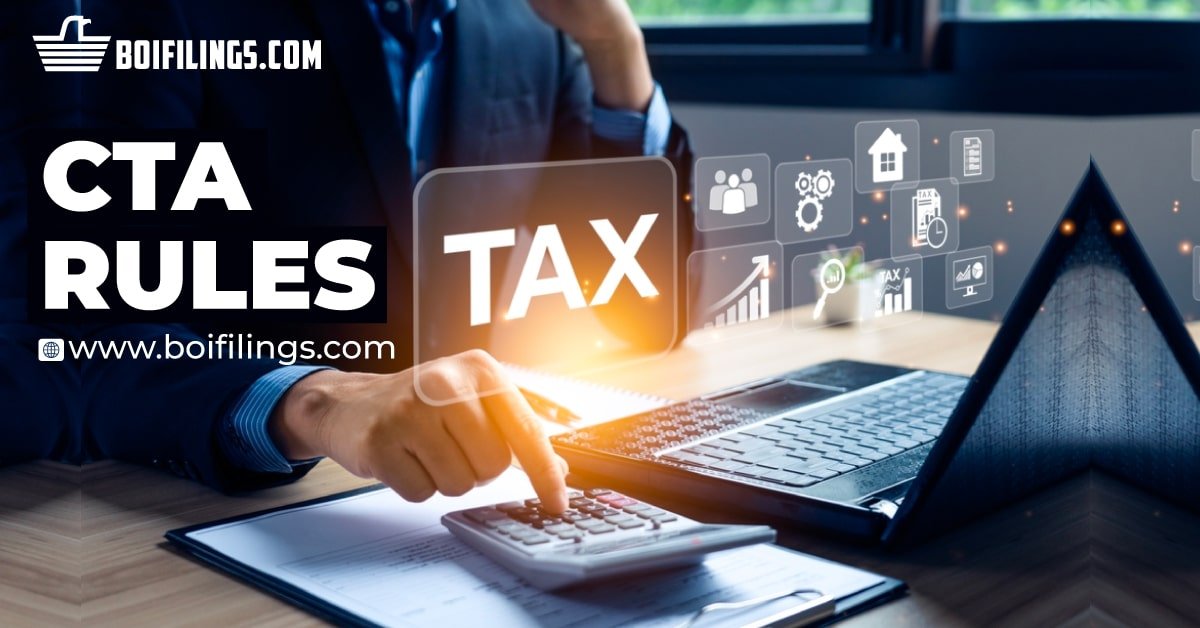In the intricate world of corporate compliance, understanding the concept of an individual Beneficial owner basics is paramount, especially with the deadline of the CTA Corporate Transparency Act. regulations set by FinCEN that began on January 1, 2024. Business owners and their advisors must navigate these new mandates with precision and clarity.
The Basics of an Individual Beneficial Owner

What Constitutes an Individual Beneficial Owner?
An individual Legal status of beneficial ownership, as defined by FinCEN, is not just anyone associated with a company. This term pertains specifically to an individual, whether directly or indirectly, who wields significant influence over a corporation or possesses a specific level of ownership stakes in the organization. Anti-money laundering compliance The defining criterion here is influence and ownership. Financial Action Task Force Substantial control means that the individual has a significant responsibility to control, manage, or direct the company, including senior positions like a CEO or CFO.
Why is Identifying an Individual Beneficial Owner Important?
The rationale behind identifying beneficial owners is to bring transparency to the ownership structures of companies. This action is a clear response aimed at addressing issues related to Anti-Money Laundering, financial fraud, and various unlawful activities. By knowing who ultimately stands behind a corporate veil, it becomes increasingly difficult for individuals to abuse corporate entities for nefarious purposes.
How Does One Determine Who the Beneficial Owners Are?
Determining who the Beneficial Ownership Report information are involves a meticulous process of examining the ownership structure of the entity. This includes reviewing all documentation related to equity interests, voting rights, and the extent of control each individual has within the company. Financial Crimes Enforcement Network. It is not enough to simply look at the surface; due diligence requires digging into the layers of ownership and control to reveal the true individuals who call the shots.
What Changes Come with the Corporate Transparency Act?
The Corporate Transparency Act 2023 brings about a sea change in how Beneficial Ownership Secure System information is reported in the United States. Previously, the opacity of corporate ownership could be used to shield the identities of those involved in illicit activities. Under the updated regulations, businesses will need to submit Ultimate Beneficial Ownership? Information (BOI) to FinCEN, encompassing comprehensive details regarding individuals who meet the qualifications of Beneficial Owners?
What Information is Required for BOI Filings?
BOI filings necessitate a range of information about each beneficial owner. This encompasses data such as full legal names, birthdates, addresses, and a distinctive identifier from an officially recognized identification document. Know about the Beneficial Owner information. The information is not to be taken lightly, as it serves as a tool for law enforcement and other authorized bodies to track the FATF - Financial Action Task Force trails when investigating illegal activities.
Who Needs to Comply with These Regulations?
Not every company is subject to these regulations. In general, this rule is applicable to corporations, limited liability companies, and other entities formed through the submission of documents to a secretary of state or a comparable governmental office. Know What is AML? However, there are exceptions, and some entities are exempt from these requirements. It's critical for business owners and their advisors to assess whether their entity falls within the scope of these regulations. Know What is an Entity Beneficial Owner for an LLC?
How Should Businesses Prepare for Compliance?
Preparation for compliance is not just a matter of paperwork. It requires a comprehensive approach to understanding and structuring the business in a way that aligns with the regulatory requirements. Companies must establish internal protocols for the collection, verification, and retention of Beneficial Ownership Information. Furthermore, they must be prepared to update this information and file it with FinCEN within the prescribed time frames. Know about NSBA, The National Small Business Association?
What Are the Penalties for Non-Compliance?
Non-compliance is not an option for businesses that fall under these regulations. Beneficial Owner for an LLC. Penalties can be severe, including hefty fines of $500 each day and, in some cases, multiple years of imprisonment for responsible parties. The message from FinCEN is clear: transparency is not just encouraged; it is enforced. Know here about Customer Due Diligence for Business Owners.
How Can Advisors Support Their Clients in This New Regulatory Environment?
Advisors play a critical role in guiding their clients through the nuances of these new regulations. These professionals must remain updated on recent developments, possess a thorough understanding of the complexities surrounding Beneficial Ownership information guide., and formulate strategies to guarantee their client's compliance with the regulations. From conducting internal reviews to liaising with legal experts, advisors must be proactive in their approach. Want to know What is the NSBA?
Conclusion
The concept of an individual beneficial owner according to FinCEN is a cornerstone of the Corporate Transparency Act regulations. As January 1, 2024, becomes a reality, businesses and their advisors must take decisive steps to understand and comply with these new mandates. PIL Personally Identifiable Information While the task may seem daunting, it is a necessary evolution in the fight against financial crimes and a step towards a more transparent business environment in the United States. What is the FATF report? The collective effort towards compliance will not only serve to deter and detect illegal activities but also to reinforce the integrity of the American financial system. Visit the website & get more details BOIFilings.
File a Required BOI
In the evolving landscape of business regulations, staying compliant is more than a mere legal formality; it's now a cornerstone of ethical and responsible entrepreneurship to file a required BOI.
Read More
CTA Rules
Let's go over CTA code of ethics rules that go into effect on January 1, 2024 (Corporate Transparency Act) for US businesses via BOI filing (Beneficial Ownership Information) with FinCEN: Learn here CTAs and NFA regulations.
Read MoreEXPLORE RELATED TOPICS
BENEFICIAL OWNER 2024 WHAT IS THE BENEFICIAL OWNERSHIP REPORT BOI LLC Ruling WHAT IS A BOI BOI REPORT